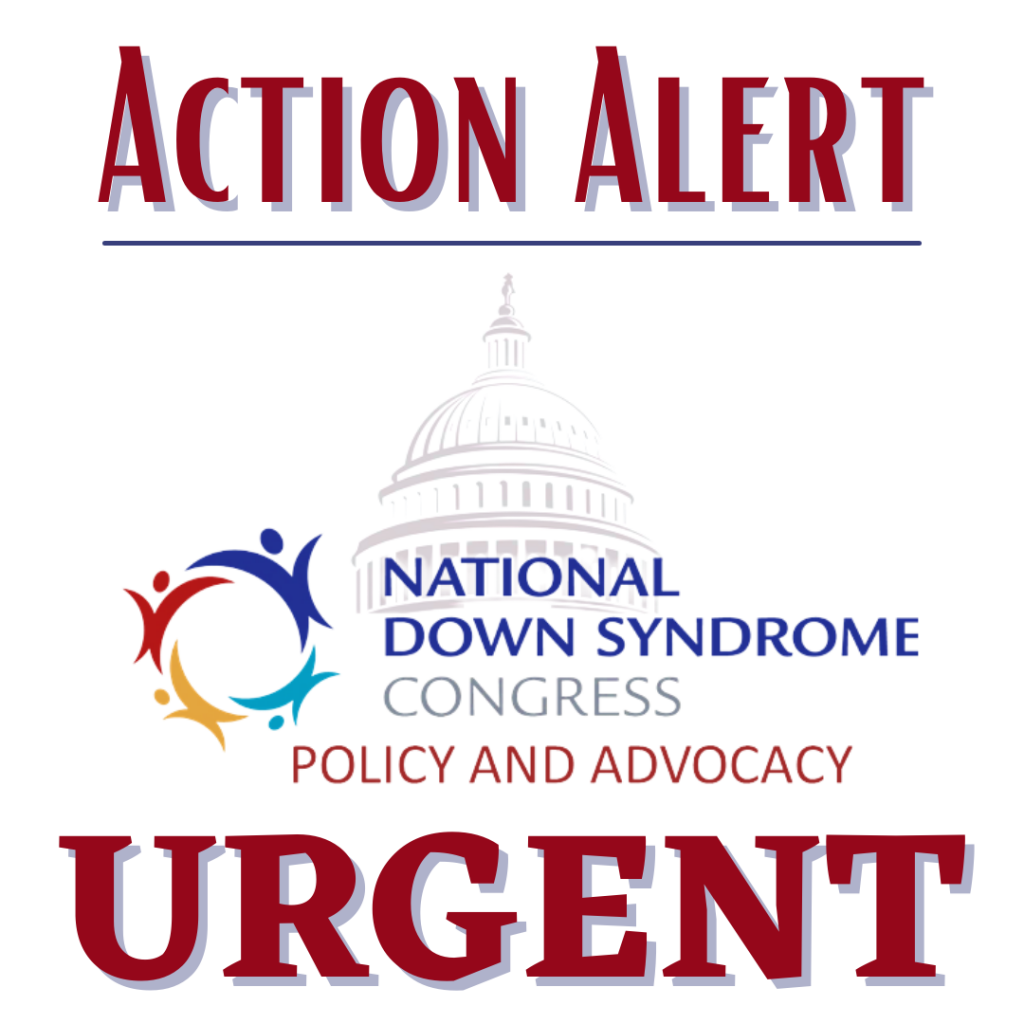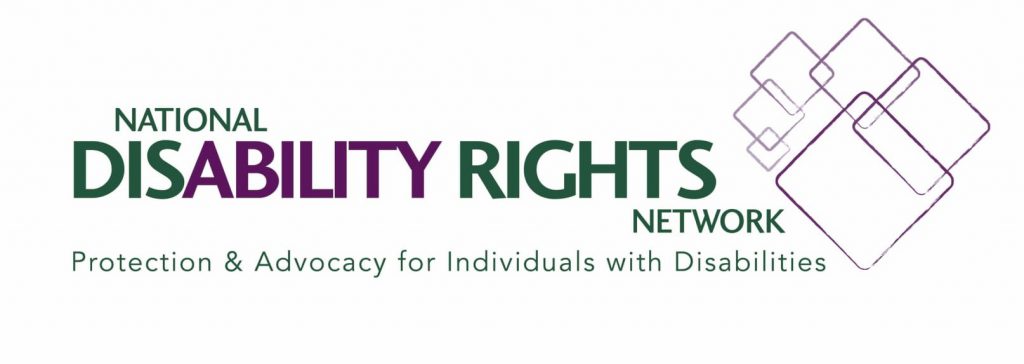Policy & Advocacy Newsline ~ September 2021

Update on the Build Back Better Reconciliation Bills
President Biden’s Build Back Better agenda contains many provisions designed to increase the inclusion of people with disabilities in every aspect of society. The plan includes expanding Medicare and Medicaid with unprecedented investments in Medicaid home and community-based services (HCBS). It also calls for better pay and benefits for caregivers, increasing competitive integrated employment opportunities for disabled workers, and eliminating the payment of subminimum wage under Section 14(c) of the Fair Labor Standards Act. He has called on Congress to pass his agenda through the Build Back Better Plan, which is primarily being negotiated through the complicated budget reconciliation process. Several congressional committees of jurisdiction are “marking up” (negotiating) legislation which will need to be finalized by the end of this month.
For example, the House Energy & Commerce Committee has jurisdiction over the Medicaid HCBS program. It has been considering the Better Care Better Jobs Act (BCJA) (S.2210, H.R.4131) to provide much-needed funding for states to expand access to HCBS and address the longstanding direct care workforce crisis. This committee’s recently released draft reconciliation bill includes an investment of $190 billion in the HCBS program. While this investment is a historic amount of funding, it will be insufficient to sustain access to HCBS and stabilize the direct care workforce. HCBS reform and improvement is a top priority for NDSC; thus, we continue to advocate for this number to be closer to the $400 billion amount proposed by the President’s plan.
The House Education and Workforce Committee has also released its part of the reconciliation bill, which aims to lower the cost of inclusive child care and the cost of higher education, expand child nutrition programs, and help workers secure jobs. The job training portions of this bill include parts of the Transformation to Competitive Integrated Employment Act (H.R. 2373), one of NDSC’s top legislative priorities. The draft bill authorizes $300,000 for the fiscal year 2022 to help states transform their employment and training systems to support people with disabilities in jobs with competitive wages that are integrated in the community. It also provides incentives for states to phase out the use of subminimum wage certificates. However, it is unable to outright eliminate Section 14(c) for procedural reasons known as the “Byrd rule.” The Education & Workforce bill also provides $279 million to increase personnel preparation authorized by the Individuals with Disabilities Education Act (see new NCLD study results related to teacher shortages). Provisions related to pre-school must be inclusive of children with disabilities. The Committee fact sheet summarizes this legislation.
Other House committees are also going through a similar process relating to the parts of the Build Back Better Plan that fall under their jurisdiction. After committee mark-ups, the bills will be sent to the floor of the House for a full vote and then will move onto the Senate for final negotiations.
Now is the time to call your Representatives and Senators to advocate for the inclusion of disability community priorities in these bills. If your Representatives are on the Energy & Commerce, Education & Labor, or Ways & Means committees, your immediate advocacy is even more critical. Click the NDSC’s Action Alert below to contact your members of Congress. Contact them today to express support for increased HCBS funding, increased funding for job training, and service provider transformation to competitive integrated employment models.

ACT NOW!

NDSC Senior Policy Advisor Stephanie Smith Lee, and Russ Thelin, Senior Policy Fellow at the Institute for Community Inclusion, presented a webinar entitled ACHIEVING IMPOSSIBLE DREAMS: Developing and Funding Inclusive Higher Education Options for Students with I.D. for the National Disability Rights Network (NDRN). NDRN is the nonprofit membership organization for the federally mandated Protection and Advocacy (P&A) Systems and the Client Assistance Programs (CAP) for individuals with disabilities. NDSC is pleased to partner with NDRN on advocacy issues of importance to individuals with disabilities. To learn more about NDRN and activities in your state, visit https://www.ndrn.org
The State of the Art Conference on Inclusive Postsecondary Education and Students with Intellectual Disability
The agenda for the State of the Art Conference on Inclusive Postsecondary Education and Students with Intellectual Disability is available, so check out everything this year’s conference has to offer! The virtual conference themed Inclusive Higher Education: Disability, Equity, and Social Justice will take place November 8 and 9. Register to learn from top experts, including faculty, program staff, students, and parents. High school and college students with I.D are encouraged to attend the Student Leadership Conference, which will parallel the SOTA Conference – This is A FREE EVENT for self-advocates!

NDSC Responds to Request For Information Regarding School Discipline
In response to the U.S. Department of Education’s Office for Civil Rights (OCR) Request for Information Regarding the Nondiscriminatory Administration of School Discipline, NDSC helped develop and signed on to the comments submitted by the Consortium for Citizens with Disabilities (CCD) Education Task Force. These comments focused on providing recommendations on avoiding situations where discipline is necessary, providing appropriate communication supports, using universal design for learning to make instruction accessible, and other promising practices such as positive behavioral interventions and supports, and a multi-tiered system of supports.
NDSC Submits Comments on U.S. Secretary of Education’s Proposed Grant Priorities
NDSC helped develop and signed on to comments submitted by the CCD Education Task Force submitted on July 30, in response to a request for public comment on the U.S. Secretary of Education’s proposed grant priorities. As well, NDSC also submitted our own comments highlighting issues impacting students with intellectual disabilities in elementary and secondary education and in postsecondary programs.
National Assessment Center Priorities Changed to Accept Recommendations by NDSC
In early June, NDSC joined with the Advocacy Institute to submit comments to the U.S. Department of Education regarding priorities for the National Assessment Center. The primary request of the letter was that the Department of Education add a focus on parents of students with disabilities into the Center’s priorities. The final priorities were recently released, and we are pleased to report that the following language was added regarding the importance of the parental role in identifying and addressing assessment issues:
“We make substantive changes to Proposed Priority 2 by adding a focus on increasing the capacity of parents of students with disabilities to understand the statutory and regulatory bases for, and benefits of, including all students with disabilities in State and districtwide assessments and other assessments used for educational programming and instructional purposes. These substantive changes impact how Proposed Priority 2 focuses attention on the important role that parents play in addressing an identified need to address national, State, and local assessment issues related to students with disabilities, including students with disabilities who are also English learners (E.L.s).” FR Page 42719
New Guidance from U.S. Office of Special Education and Rehabilitative Services on Implementing IDEA in 2021-22 School Year
On August 24, 2021, the U.S. Department of Education’s Office of Special Education and Rehabilitative Services (OSERS) sent a letter to state and local education agencies reiterating its commitment to ensuring that children with disabilities and their families have a successful early intervention and educational experiences in the 2021–2022 school year. This letter was written “to help ensure that — regardless of the COVID-19 pandemic or the mode of instruction — children with disabilities receive a free appropriate public education (FAPE) in accordance with the Individuals with Disabilities Education Act (IDEA), and that infants and toddlers with disabilities and their families receive early intervention services.” The letter also states that OSERS will release IDEA guidance documents in the coming weeks and months, focusing on school reopening efforts and supporting the full implementation of IDEA requirements.
TIES Center Resources on Planning for an Inclusive IEP
In collaboration with the University of Washington School of Education, The TIES Center on Inclusive Practices and Policies for Students with Significant Cognitive Disabilities has developed a comprehensive resource on the planning process for an inclusive IEP. The resource includes a short parent brief co-authored for TIES by NDSC’s Senior Education Policy Advisor, Ricki Sabia.
Find more comprehensive resources from the TIES Center
Look for an announcement of an NDSC webinar with TIES staff on this topic, which will take place on October 14, 2021.
National Center for Educational Outcomes (NCEO): FAQ on Assessments for 2021-22 School Year
As states, districts, and schools plan to return for the 2021-22 school year, questions are raised about whether and how to test children with disabilities, including children with the most significant cognitive disabilities and English learners with disabilities. An NCEO Frequently Asked Questions Document addresses some common questions and provides links to other useful resources
